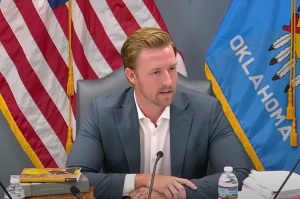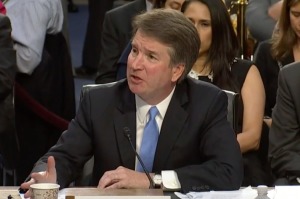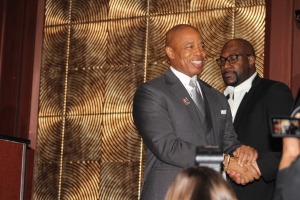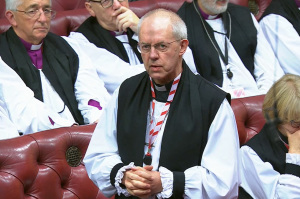What John Calvin Has to Say About the Day of Judgment
So after the false prediction of Harold Camping, who said Judgment Day would begin on May 21, let's look back to what 16th century Reformed theologian John Calvin had to say about knowing when the last days will be upon us.
Matthew 24:36 Commentary:
But of that day and hour no man knoweth, not even the angels of heaven, but my Father alone.
36. But of that day and hour.
By this sentence, Christ intended to hold the minds of believers in suspense that they might not, by a false imagination, fix any time for the final redemption. We know how fickle our minds are, and how much we are tickled by a vain curiosity to know more than is proper. Christ likewise perceived that the disciples were pushing forward with excessive haste to enjoy a triumph.
He therefore wishes the day of his coming to be the object of such expectation and desire, that none shall dare to inquire when it will happen. In short, he wishes his disciples so to walk in the light of faith, that while they are uncertain as to the time, they may patiently wait for the revelation of him.
We ought therefore to be on our guard, lest our anxiety about the time be carried farther than the Lord allows; for the chief part of our wisdom lies in confining ourselves soberly within the limits of God's word. That men may not feel uneasy at not knowing that day, Christ represents angels as their associates in this matter; for it would be a proof of excessive pride and wicked covetousness, to desire that we who creep on the earth should know more than is permitted to the angels in heaven.
"Aux anges de Paradis;" to the angels in Paradise.
Mark adds, nor the Son himself. And surely that man must be singularly mad, who would hesitate to submit to the ignorance which even the Son of God himself did not hesitate to endure on our account. But many persons, thinking that this was unworthy of Christ, have endeavored to mitigate the harshness of this opinion by a contrivance of their own; and perhaps they were driven to employ a subterfuge by the malice of the Arians, who attempted to prove from it that Christ is not the true and only God.
So then, according to those men, Christ did not know the last day, because he did not choose to reveal it to men. But since it is manifest that the same kind of ignorance is ascribed to Christ as is ascribed to the angels, we must endeavor to find some other meaning which is more suitable. Before stating it, however, I shall briefly dispose of the objections of those who think that it is an insult offered to the Son of God, if it be said that any kind of ignorance can properly apply to him.
As to the first objection, that nothing is unknown to God, the answer is easy. For we know that in Christ the two natures were united into one person in such a manner that each retained its own properties; and more especially the Divine nature was in a state of repose, and did not at all exert itself,
"La Divinit est tenue comme cachee; est dire, a point demonstr sa vertu;" the Divine nature was kept, as it were, concealed; that is, did not display it's power.
Whenever it was necessary that the human nature should act separately, according to what was peculiar to itself, in discharging the office of Mediator. There would be no impropriety, therefore in saying that Christ, who knew all things, (John 21:17) was ignorant of something in respect of his perception as a man; for otherwise he could not have been liable to grief and anxiety, and could not have been like us, (Hebrews 2:17.) Again, the objection urged by some that ignorance cannot apply to Christ, because it is the punishment of sin is beyond measure ridiculous. For, first, it is prodigious folly to assert that the ignorance which is ascribed to angels proceeds from sin; but they discover themselves to be equally foolish on another ground, by not perceiving that Christ clothed himself with our flesh, for the purpose of enduring the punishment due to our sins. And if Christ, as man, did not know the last day, that does not any more derogate from his Divine nature than to have been mortal.
I have no doubt that he refers to the office appointed to him by the Father as in a former instance, when he said that it did not belong to him to place this or that person at his right or left hand, (Matthew 20:23; Mark 5:40.) For (as I explained under that passage Harmony, vol. 2, p. 421) he did not absolutely say that this was not in his power, but the meaning was, that he had not been sent by the Father with this commission, so long as he lived among mortals. So now I understand that, so far as he had come down to us to be Mediator, until he had fully discharged his office that information was not given to him which he received after his resurrection; for then he expressly declared that power over all things had been given to him, (Matthew 28:18.)
Commentary excerpt from BiblePortal.com





























